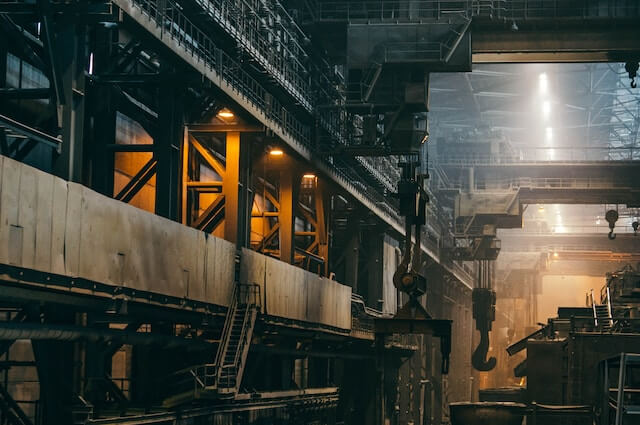The industrial sphere in the United Kingdom, a significant hub of technological evolution and economic progress, has always placed immense value on precision, efficiency, and compliance. At the heart of this complex machinery lie industrial weighing systems, undeniably critical to a multitude of sectors. These devices, ranging from intricate Industrial Weighing Scales, form the backbone of modern industries, promising accuracy in measurements and acting as the bedrock for regulatory compliance.

The Rising Need for Precision
In a world governed by technology and data, there is no room for errors. Particularly in the industrial sectors, where every fraction of a measurement can translate into significant financial implications or safety hazards, the need for precision is non-negotiable. Industrial scales, with their ability to deliver accurate results consistently, meet this demand. From fine chemical processes to large scale manufacturing, these devices stand at the intersection of quality control and operational efficiency.
The Integral Part of Compliance – Vehicle Scales
Vehicle scales, also known as weighbridges, play a vital role in ensuring the seamless movement of goods across supply chains while upholding strict regulatory standards. Whether it’s the transportation industry monitoring freight weights to prevent overloading, or waste management facilities quantifying the amount of waste processed, vehicle scales help maintain transparency and adhere to industry norms.
Accurate Weighing – A Cornerstone for Diverse Sectors
Industrial and vehicle scales serve as fundamental instruments across a variety of sectors, each with its unique demands. In the manufacturing industry, industrial scales ensure that every product adheres to the strict weight and quality parameters, thereby reducing waste and increasing efficiency. In logistics and transport, vehicle scales play a key role in load management, offering reliable weight data for both safety and economic optimization. In the construction sector, accurate weighing is essential in calculating the correct mix of raw materials, directly impacting the strength and quality of the structures.
Interplay with Technology – Driving Efficiency and Innovation
In the age of digital transformation, industrial scales and vehicle scales are no longer standalone instruments. Instead, they have evolved into connected devices, integrated into larger systems and networks, contributing valuable data for enhanced decision-making and predictive analysis. This technological interplay is not only reshaping the way industries operate but also driving innovation and growth in the industrial weighing equipment market in the UK.
The dynamics of the industrial weighing equipment market provide a window into the future of the industrial sectors, underlining the increasing importance of these essential devices.
Exploring the Market: The Rising Demand for Industrial Weighing Equipment
The United Kingdom’s industrial landscape is vast and diverse, extending from the labyrinthine corridors of manufacturing facilities to the bustling activity of logistics hubs, the intense dynamics of construction sites, and the meticulous operations of waste management companies. Across this broad spectrum of sectors, one common element emerges as a linchpin of efficiency and precision – industrial weighing equipment.
The Increasing Value of Advanced Weighing Systems
No longer limited to basic weight measurements, advanced weighing systems have become an indispensable tool in a wide array of applications. Particularly notable are the roles of Industrial Scales and Vehicle Scales, each contributing significantly to the drive for business efficiency and precision.
In manufacturing, for instance, industrial scales underpin quality control processes, ensuring product consistency and mitigating waste. In logistics, vehicle scales play a crucial role in maintaining optimal freight loads, reducing the risk of overloading, and ensuring adherence to transport regulations.
In construction, where the accurate proportioning of materials can directly impact the structural integrity of buildings, industrial scales ensure each mix is precise. Meanwhile, waste management leverages vehicle weighing scales for quantifying the volume of waste handled, which is critical for operational planning and compliance with environmental regulations.
Data Insights & Forecast: A Glimpse into the Future of the Weighing Equipment Market
In analysing market trends and growth trajectories, data stands as an invaluable asset. As of 2021, the UK’s industrial weighing equipment market had experienced consistent growth over the preceding five years. This trend was propelled by the expanding industrial sector, technological innovations, and increasing regulatory demands.
While the exact growth figures would require validation from the most recent market research, certain indicators suggest a positive outlook. The rising demand for advanced weighing systems across multiple sectors, the ongoing advancements in weighing technology, and the stringent regulatory landscape all point towards a continued upward trajectory for the industrial weighing equipment market in the UK.
Looking forward, it seems clear that commercial weighing scales will remain integral components of the industrial landscape, with their importance likely to grow in tandem with the expanding and evolving industrial sector.
The Essential Role of Vehicle Scales in Industry
Vehicle scales, commonly known as weighbridges, hold an irreplaceable position within the dynamics of the industrial sectors such as transportation, logistics, and waste management. In an industrial environment driven by the insatiable need for rapid, precise weighing solutions, the demand for advanced vehicle scales has soared to unprecedented heights.
Growing Demand Driving Technological Innovation
This escalating demand has subsequently catalysed a wave of technological innovations within the vehicle scales sector. New systems leveraging IoT and AI technologies are revolutionising the way vehicle scales function, introducing real-time weight monitoring, predictive maintenance, and seamless integration with larger operational systems. These advancements are not only responding to immediate industry needs but are also charting a course for the future growth and evolution of vehicle scales.
Influence on the Industrial Scales Market
The market for Industrial Scales has experienced a comparable trajectory. Key sectors such as manufacturing, processing, and packaging have a deep-rooted reliance on industrial scales for precise, consistent measurements. These measurements underpin quality control processes, optimise resource utilisation, and ultimately drive the efficiency and profitability of operations.
Increased Focus on Automation and Quality Control
As industries continue to embrace automation, the focus on quality control has intensified, prompting a surge in investment in advanced weighing equipment. These sophisticated systems offer not only high precision and durability, but also a high degree of integration with other operational systems. They collect and provide critical data that fuels process optimisation, predictive maintenance, and decision-making.
By harnessing advanced technologies, industrial scales are evolving from standalone devices into interconnected elements of a vast industrial network. This evolution is both a response to the increasing demands of modern industries and a driver of further growth in the industrial scales market. The combination of technological advancement and escalating market demand paints a promising picture for the future of the industrial weighing equipment market in the UK.
Navigating Challenges and Embracing Opportunities in the Weighing Equipment Market
The journey of the industrial weighing equipment market, despite its promising growth and bright future, has not been without hurdles. Among the challenges that industries face, the high initial investment and maintenance costs of advanced weighing systems stand out. For many businesses, particularly small and medium-sized enterprises, these costs can pose significant financial strain.
The Promise of Predictive Maintenance and Remote Monitoring
However, with challenges come opportunities. The evolving landscape of the weighing equipment market has seen a shift towards predictive maintenance and remote monitoring, both of which have the potential to significantly reduce long-term costs. Predictive maintenance can prevent unexpected equipment failures and associated downtime, while remote monitoring allows for immediate detection and resolution of issues, improving overall operational efficiency.
These technological shifts present significant opportunities for manufacturers and suppliers of industrial scales and vehicle scales. By innovating and adapting to these trends, they can provide more cost-effective, efficient solutions for businesses, simultaneously driving growth in the market.
Conclusion: Envisioning the Future of the Industrial Weighing Equipment Market in the UK
The industrial weighing equipment market in the UK is in the midst of an exciting phase of growth and transformation. With a spotlight on Industrial Scales and Vehicle Scales, the market’s growth narrative is driven by cutting-edge technological advancements and stringent regulatory norms that underscore the need for accuracy and efficiency.
As we forge ahead into the heart of the digital age, it is clear that advanced weighing systems will continue to be integral to industry-level operations. They serve as the bedrock of accuracy, a cornerstone of efficiency, and a key to maintaining regulatory compliance. Their role will only become more critical as industries strive to increase productivity, reduce waste, and ensure quality, marking an era of unprecedented opportunities for manufacturers, suppliers, and users of industrial weighing equipment alike.
In the grand tapestry of the UK’s industrial sectors, commercial scales and vehicle scales stand out as threads of technological innovation, economic value, and regulatory compliance, weaving a pattern of progress and growth. As we delve into the future, it is certain that this pattern will only become more intricate and more pronounced, leading the way for a new era in industrial operations.















